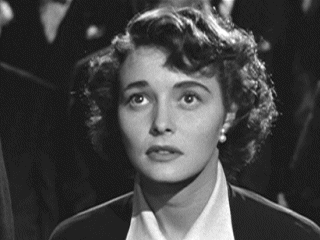
If you know me, you know I love the books from the
New York Review Books press. They are, for the most part, wonderful books gone out of print, books never before translated into English and, in general: Nearly Lost Classics.
I love the clean, sharp, consistent cover design, clear font and that they are all around the same price. And no hardcovers. I hate hardcover books.
For every ten NYRB books I've read, there have only been a few I haven't totally gone nuts for. I can truly say that of all of the books that have moved me in the last 5 years, 80 percent of them have been NYRB press books. I'm not shilling for them, I swear.
Therefore I am going to attempt to read and review all the of books that the press has put out. This is quite a challenge because there are quite a few. But I will review the books I've already read and offer some background if I can.
I found this book in 2002, when Coliseum Books on 57th St. was closing. They didn't have much merchandise left but I spotted this and decided to judge the book by its cover. I've always been attracted to book covers with swimming pools on them.
I read it in one sitting and then re-read it and then pronounced it my favorite book of all time.
I'll supply the NYRB synopsis:
"The hero of Darcy O’Brien’s A Way of Life, Like Any Other is a child of Hollywood, and once his life was a glittery dream. His father starred in Westerns. His mother was a goddess of the silver screen. The family enjoyed the high life on their estate, Casa Fiesta. But his parents’ careers have crashed since then, and their marriage has broken up too.
Lovesick and sex-crazed, the mother sets out on an intercontinental quest for the right—or wrong—man, while her mild-mannered but manipulative former husband clings to his memories in California. And their teenage son? How he struggles both to keep faith with his family and to get by himself, and what in the end he must do to break free, makes for a classic coming-of-age story."
O'Brien coyly denied that this extremely funny and sharp book is based on his own life. His own father, silent film star
George O'Brien, appeared in countless Westerns, working with F.W. Murnau, John Ford and countless other. O'Brien's mother was the film and stage star
Marguerite Churchill.
The details about high and low life in Hollywood are perfection: The ludicrous parties, the heart attacks, the deals, the anti-Semitism and the big Jewish money, the gambling, the boredom, the beauty, the sex, the melodrama, the dwindling fan mail... O'Brien nails it all. It's also about loss: Loss of money, loss of prestige, loss of fame, loss of family, loss of innocence, loss of faith.
I will give you the first paragraph:
"I would not change the beginning for anything. I had an electric car, a starched white nanny, a pony, a bed modeled after that of Napoleon's son, and I was baptized by the Archbishop of the dioscese. I wore hats and sucked on a little pipe. I was the darling of the ranch, pleasing everyone. One day I was sunning myself on the patio, lying on the yellow and blue tiles, when a bee stung me on my bare fanny. The response to my screams was wonderful. Servants everywhere, my mother giving orders. Don Enrique applied an old Indian remedy and my father took me down to the beach to let the salt water do its work. Oh, what a world it was! Was there ever an ass so pampered as mine?"
Many will draw comparisons to Nathaniel West's "The Day of the Locust" but only because both novels take place in Hollywood and have angry dwarves in them. But I like O'Brien's much better.
L.A. residents take note: If the cover art looks familiar, it's because
it hangs in the cafe in Fred Segal in West Hollywood. I saw it with my own eyes and was filled with joy.
It was the perfect cover for this fantastic book: Bright, sunny and absurd.



